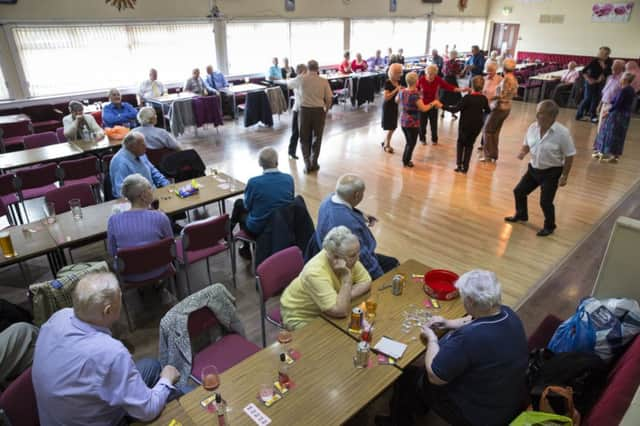Jon Curtice: UK identity affects older voters


Not all polls define “older people” in the same way – some say they are anyone over 55, others 60 or 65. But whatever the definition, in each case the proportion saying they will vote Yes is lower than among voters in general.
According to the most recent poll conducted by each of the six companies polling regularly during the referendum, on average just 35 per cent of older people say they will vote Yes (once undecideds are left to one side) – well down on the equivalent figure of 44 per cent among voters as a whole.
Advertisement
Hide AdAdvertisement
Hide AdIn part, at least, the explanation for older people’s reticence to vote Yes lies in the fact that they have a strong British identity. After all, for many older people the final days at least of the British Empire form part of their childhood memory. Some will even have recollections of victory in 1945.
The most recent Scottish Social Attitudes survey shows that no less than 51 per cent of over-65s have a strong British identity, compared with 34 per cent of Scots as a whole. And those with a strong British identity are more reluctant to leave the Union.
But older people are also more sceptical on the issue that matters above all to voters in the referendum – the economic consequences of independence. According to our most recent ICM survey, just 23 per cent of older people think that independence would be good for Scotland’s economy, while no less than 61 per cent believe it would be bad – a net pessimism score of –38. Among voters in general that score stands at only –11.
That concern for the financial implications of independence also extends to an issue that is of particular relevance to older people – pensions. As many as 36 per cent of over-65s think that pensions would be lower in an independent Scotland, compared with 27 per cent of Scots in general.
Indeed, a special Survation poll of over-60s in particular found that no less than 41 per cent are “very concerned” about how the state pension will be funded if Scotland become independent. Just 13 per cent say they would be equally concerned if Scotland remained part of the UK.
The grey vote could yet prove to be the Yes side’s undoing. «
• John Curtice is professor of politics at Strathclyde University